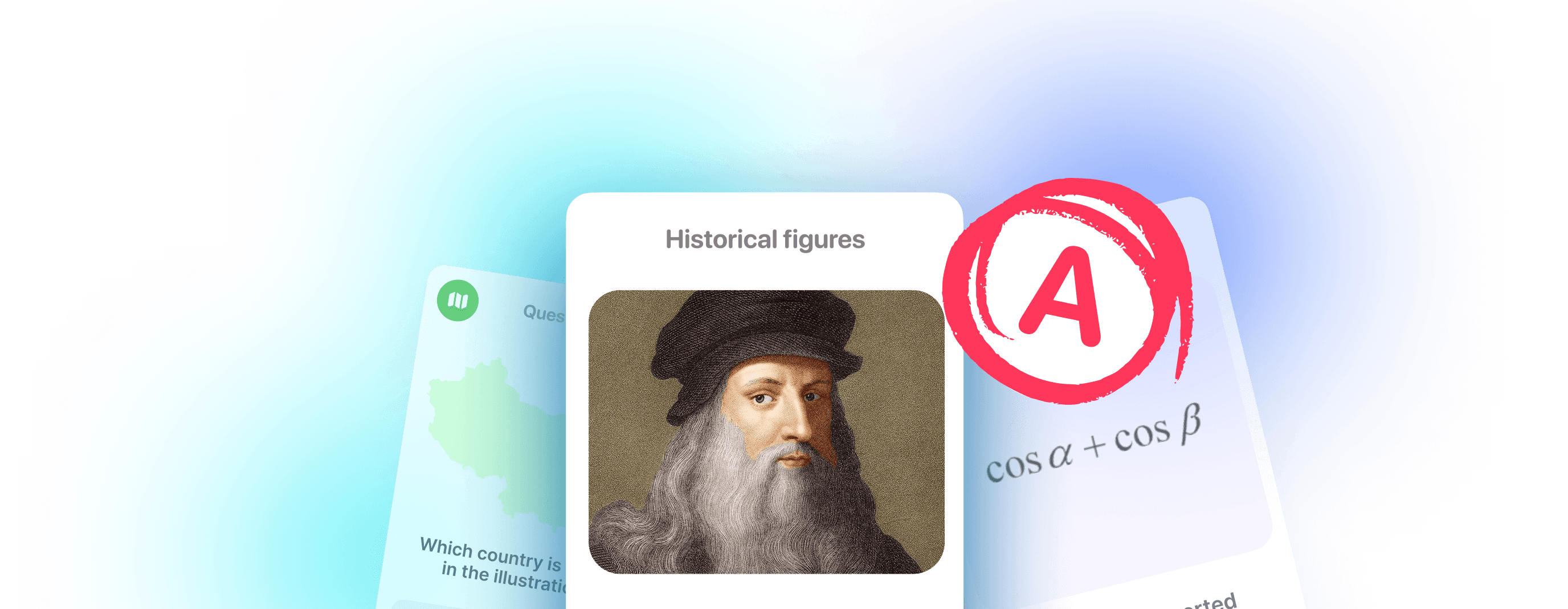Want to apply for a decal school but are terrified with the perspective of passing the MCAT exam? It is easy to understand because this test is extremely hard. We prepared this guide to make your life easier and summarized all the best tips on how to study for the MCAT effectively.
What Is the MCAT?
The Medical College Admission Test (MCAT) is a test that students who want to go to medical schools in the United States, Canada, and some other countries must take. The MCAT checks how well a student understands science, as well as their ability to think critically and solve problems.
This is how the structure of the MCAT looks:
✏️ Biological and Biochemical Foundations of Living Systems — tests your knowledge of biology and biochemistry, like how cells work, how organs function, and how the body processes energy.
✏️ Chemical and Physical Foundations of Biological Systems — checks your understanding of chemistry and physics and how they relate to biological systems.
✏️ Psychological, Social, and Biological Foundations of Behavior — covers psychology, sociology, and behavioral science, and how these fields affect health and behavior.
✏️ Critical Analysis and Reasoning Skills (CARS) — measures your ability to read, understand, and analyze complex texts, often focusing on social issues.
The test takes 7, 5 hours (omg!) with breaks.
How long does it take to study for the MCAT, you may ask. It may take from several months to one year to prepare for the MCAT exam, as it is very diverse and checks knowledge of different science fields.

How to Organize Your Preparation
To begin with, the main recommendation is to start preparation earlier! Then go through the following steps.
💊 Find Your Starting Point
If you have not started your preparation yet, you may have a lot of questions. What exactly do I need to study? How long should I study for the MCAT? Where to begin with?
Your starting point is your score if you took the MCAT right now, without any extra studying. To figure this out, take a full-length practice test to make the conditions as close to the real exam as possible. The score you get will show you which areas need the most attention during your preparation.
💊 Create a Plan
Creating a plan may sound like something unnecessary and overwhelming, but practice shows it is really helpful. The plan helps you structure the study process and prevents skipping studies because “you don’t have time”. Planning will help you to determine how long should you study for the MCAT.
But if you have put the time in your calendar, you have it. If you plan ahead the topics you need to study on the exact day and at the exact time, you will not spend this hour repeating something you already learned or making exercises for the part you are not prepared for yet.
💊 Make Studying for the MCAT Your Routine
Here is an example of how one of the users of Reddit prepared for the exam while having full-time studies and a job:
I had a 4 month study period and dedicated the first 2 months to content review and the second 2 months to practice questions and tests. While I was studying I was a full-time student and worked ~20 hours/week, so I didn’t have time to study for extended periods of time every day. I would estimate I spent ~3 hours a day studying for the first two months and probably ~5 hours a day in the last month.
It is not an exact or the most recommended strategy on how to study for the MCAT, it is just one example. You don’t need to study this much and you might have to choose another study strategy, but you will need to prepare daily and be committed to the study process.

💊 Gather Study Materials
Choose the books and other materials wisely: spending hours on badly structured textbooks will not help you (quite the opposite).
You will need:
- Well-reviewed books (e.g., Kaplan, Princeton Review, or ExamKrackers). These books cover essential content and practice questions.
- Practice Tests: The AAMC (Association of American Medical Colleges) offers official MCAT practice tests that closely resemble the real exam.
- Online Resources: Use platforms like Khan Academy (which has a free MCAT course), UWorld, and Reddit’s r/MCAT for tips, explanations, and support.
- Flashcards: For memorizing facts, use or create MCAT-specific flashcards at Anki Pro.

💊 Consider a Preparatory Course or Working With a Tutor
Taking a prep course may not be the best way to study for the MCAT but it is worth thinking about it. Prep course is helpful but not necessary for everyone. If you prefer structure, and expert advice, and can afford it, a course could be valuable. You may take a course or work with a teacher only on one of the parts of the course like biology or chemistry, if you feel like you don’t manage with these topics alone.
If you’re self-motivated and good at studying on your own, you might be able to prepare effectively without one.
💊 Master Content Review
Focus on reviewing key subjects such as biology, chemistry, physics, organic chemistry, biochemistry, psychology, sociology, and critical thinking for CARS. Take detailed notes, create concept maps, or use other active learning techniques like teaching the concepts to someone else. Identify your weak areas using practice exams and quizzes, and dedicate extra time to revising those topics.
💊 Rotate Subjects
Divide your study time among different topics each day. To make the most of your study sessions and fully concentrate on each subject, aim to spend at least one to one and a half hours on each topic. It’s generally not a good idea to study just one subject the whole day. Studying multiple subjects in shorter, focused sessions can help keep your mind engaged, improve retention, and prevent burnout.
💊 Tests, Tests, Test
If you need some advice on how to study for the MCAT it would be: take a lot of tests. Taking practice exams, such as those from MedSchoolCoach, is essential for effective MCAT preparation.
These tests mimic the real exam environment, helping you get familiar with the MCAT’s format, timing, and question types. Make practice exams a regular part of your study routine, especially after you’ve done a thorough content review.
💊 Analyze Your Progress and Weaknesses
After finishing each practice test, take time to thoroughly analyze your results. This helps you see both your strengths and areas where you need improvement. Use what you learn from your correct and incorrect answers to adjust your study plan.
Answer these questions after each practice session:
- Why did you get those questions wrong?
- If it was due to a knowledge gap, what topic or subject should you review to fix it?
- If the issue was reading comprehension or test-taking strategy, what lesson can you take from this to avoid similar errors in the future?
Do more and more tests as the date of the exam approaches.
💊 Learn to Stay Concentrated and Focused
Staying focused for several hours can be tough, especially in a stressful environment. To prepare for test day, gradually increase the length of time you work on passages while taking shorter breaks. Keep doing this until you’re able to concentrate comfortably for a few hours without losing focus.
💊 Rest Well
It is easy to forget about yourself during MCAT preparation. But you must because you don’t have anyone else to pass the exam for you (would be great!). It is your responsibility as well as exam preparation to keep your body healthy and your mind and mental health in good form.
Prioritize 7-9 hours of sleep, eat a balanced diet with healthy snacks, and stay hydrated. Incorporate regular exercise, even if it’s just a walk, to boost energy and mood. Manage stress with relaxation techniques like deep breathing or meditation, and take regular breaks to avoid burnout. Create a realistic study schedule with rest days and don’t overload yourself. Celebrate progress and be kind to yourself if you make mistakes.

How to Prepare for the CARS Part?
Preparing for the Critical Analysis and Reasoning Skills (CARS) section of the MCAT requires a specific strategy, as it focuses more on reading comprehension and critical thinking than on science content. Not everybody can easily do it without specific preparation.
What Includes the CARS Part?
The CARS section has 9 passages followed by questions that test your ability to analyze and interpret information. The passages come from a variety of humanities and social sciences subjects like philosophy, ethics, literature, history, and more.
You don’t need to know any specific facts to answer the questions. It’s all about how well you can understand and analyze the passage. In this section, we will tell you how to study for the MCAT CARS.
✏️ Read a Lot
No, not Facebook posts of your friends or articles about Lana Del Rey’s wedding (we would love them too!) But here you need to start reading articles and essays on a wide range of serious topics, including philosophy, ethics, and the arts. Sources like The Economist, The New Yorker, The Atlantic, and academic journals can be helpful. Practice summarizing paragraphs, identifying main ideas, and noting the author’s tone or bias while reading.
But don’t forget to catch up on reading about Hollywood gossip in your free time!
✏️ Analyze the Question Types
There are three types of questions in this part. Main Idea Questions: Practice identifying the central theme of the passage.
Inference Questions: Work on drawing conclusions based on information given in the text, even if it’s not explicitly stated.
Tone and Perspective: Focus on identifying the author’s attitude and point of view in the passage.
✏️ Practice CARS Reading Part
Set aside time to do a few CARS passages every day. The more you practice, the better your comprehension and reasoning skills will get. Set a timer and check how fast you can answer the questions and how long it will take you during the exam.
Carefully go over the answers, especially the ones you got wrong. Understand why the correct answer is right and why the others are wrong.
✏️ Work on Critical Thinking Skills
You will need it in a real-life situation always. Get in the habit of questioning the author’s assumptions and evaluating the strength of their arguments. Learn to detect bias or any underlying assumptions in the passages.
Strengthen your ability to logically assess arguments, spotting both strengths and weaknesses.

How to Use Flashcards During the MCAT Exam Preparation?
Flashcards are a great instrument when it comes to memorization of big amounts of information. They are extremely helpful for memorizing definitions, formulas, and processes, which are essential for quick recall during the test. How exactly use them?
Use Active Recall
When reviewing flashcards, actively try to recall the answer before flipping the card. This strengthens memory and improves retention.
Use a spaced repetition system to review flashcards at optimal intervals, focusing on cards you tend to forget more often. Apps like Anki Pro will create this schedule for you.
Review Regularly
Spend a few minutes each day reviewing your flashcards. Consistent, short reviews are more effective than cramming a lot of cards at once. Go through flashcards when you have a moment — while commuting to university, waiting in a line, or before bed.
Use Milesdown Deck
The MilesDown deck is a popular set of flashcards specifically designed for MCAT preparation, based on the well-known MilesDown MCAT review notes. MilesDown is an anonymous person who is known in the online medical community for creating well-organized and useful preparation materials for future medical students. And sharing them for free!
The deck has colorful illustrations and links to additional readings in case you would want to learn more or refresh your knowledge.
Explore the deck: MCAT Milesdown

You can also check other decks in different disciplines if you want to review some specific topics. For example, the deck MCAT Biology CONTENT will suit for moments when you want to concentrate only on this science field.
Explore the deck: MCAT Biology CONTENT

Now you have all the tips for passing the MCAT! Good luck and, please, be a good doctor!








